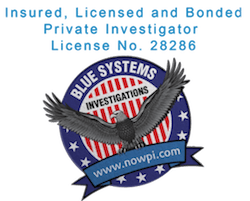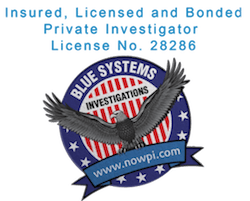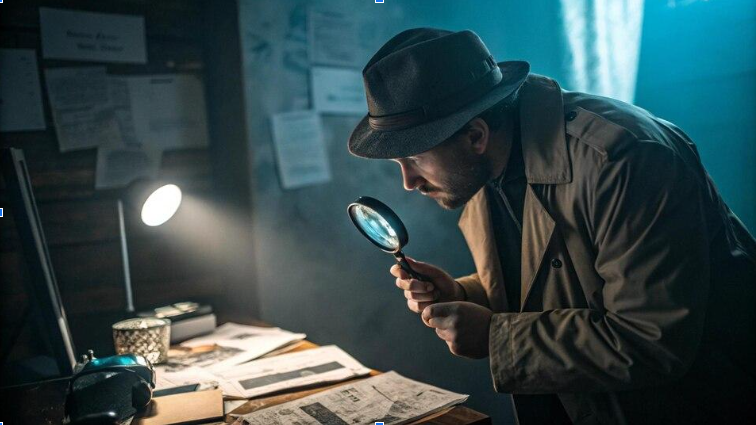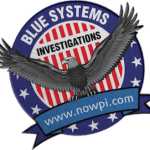Latest Blog Posts
August 15, 2019
August 15, 2019
August 15, 2019
Follow us on Facebook
Certification
CA Private Investigator
License No. 28286
PI Services
Locations Served
Client Intake Forms
Child Custody Investigation: Protecting Your Children's Best Interests
When the wellbeing of your children is at stake, accurate information becomes invaluable. Child custody investigations provide objective documentation of parenting behaviors, living conditions, and potential safety concerns that help courts make informed decisions about custody arrangements. These specialized investigations combine discreet surveillance, thorough documentation, and legal expertise to ensure children's best interests remain the priority in challenging family situations.
Understanding Child Custody Investigations
Child custody investigations are specialized inquiries conducted by licensed private investigators to gather evidence regarding parenting practices, living conditions, and potential safety concerns affecting children. Unlike general surveillance cases, these investigations focus specifically on factors relevant to child welfare and custody determinations.
Courts face significant challenges when determining appropriate custody arrangements, particularly when parents present contradicting claims about each other's behavior or home environment. Professional child custody investigators provide objective, third-party documentation that helps family courts make informed decisions based on verified information rather than allegations.
These investigations typically become necessary in several situations:
- When there are concerns about a parent's behavior during visitation periods
- When substance abuse or addiction issues are suspected
- When inappropriate individuals have access to children during custody periods
- When there are allegations of neglect or unsafe living conditions
- When court-ordered custody arrangements may be violated
- When documentation is needed to modify existing custody orders
- When a parent's lifestyle raises questions about supervision adequacy
While emotional testimony carries some weight in family court, documented evidence provided through professional investigation often proves substantially more influential in custody determinations.
Legal Foundation for Custody Decisions
Family courts base custody decisions on the "best interests of the child" standard, focusing on factors that impact children's welfare, safety, and development. Professional custody investigators understand these legal standards and focus their evidence-gathering on elements courts consider most relevant:
Primary Custody Determination Factors
Courts typically consider numerous elements when making custody decisions:
- Each parent's ability to provide stable, nurturing environments
- Historical caregiving roles and parenting involvement
- Children's existing relationships with each parent
- Maintaining consistency in children's education and social connections
- Each parent's willingness to support relationships with the other parent
- Children's preferences (when age-appropriate)
- Any history of domestic violence, substance abuse, or neglect
- Parents' physical and mental health status
- Home environment safety and appropriateness
Child welfare investigations focus on gathering objective evidence related to these factors, helping courts make informed custody determinations based on verified information rather than contradictory claims.
Admissible Evidence Standards
For investigation findings to impact custody decisions, they must meet specific legal standards:
- Evidence must be legally obtained through appropriate methods
- Documentation must include proper timestamps and verification
- Chain of custody for evidence must be maintained
- Information must be gathered by licensed professionals
- Evidence must be relevant to custody determination factors
- Documentation must be objective rather than interpretive
- Information must be current and accurately represent conditions
Family law investigators understand these requirements and ensure their documentation meets admissibility standards for family court proceedings.
Types of Child Custody Investigations
Child custody investigations vary significantly based on specific concerns and circumstances. The most common types include:
Parenting Time Verification
These investigations document how custody or visitation time is actually used:
- Whether children receive proper supervision during parenting time
- How parents interact with children during their custody periods
- Whether court-ordered exchange times are honored
- If third parties have access to children during parenting time
- Whether parents maintain appropriate boundaries and behavior
- If visitation involves age-appropriate activities and environments
- Whether parent-child interactions appear healthy and nurturing
These observations help courts understand whether custody arrangements are functioning as intended and whether adjustments may be necessary.
Living Conditions Assessment
Home environment investigations examine physical living situations:
- Whether housing provides adequate space and appropriate facilities
- If living conditions meet basic health and safety standards
- Whether children have suitable sleeping arrangements
- If environmental hazards exist in the home
- Whether adequate food and necessities are available
- If supervision is appropriate for children's ages
- Whether other household members pose potential concerns
Home environment investigators document these conditions through detailed reports and appropriate photographic evidence when legally permitted.
Substance Abuse Monitoring
When substance abuse concerns exist, investigations may focus on:
- Evidence of alcohol or drug use during parenting time
- Behavioral indicators suggesting impairment around children
- Whether substance use affects parenting capacity
- If children are exposed to substances or paraphernalia
- Whether driving with children occurs while impaired
- If substance-using adults have access to children
- Whether treatment programs are being attended as claimed
These sensitive investigations require particular discretion and specialized knowledge of substance abuse indicators.
Third-Party Association Concerns
Some investigations focus on who has access to children:
- Whether inappropriate individuals have contact with children
- If known offenders or unsafe persons are present during visitation
- Whether children are exposed to new relationships prematurely
- If concerning individuals live in or frequent the household
- Whether proper supervision exists when third parties are present
- If children express discomfort with certain individuals
- Whether court orders regarding specific associations are followed
These association concerns often require background check services to verify the history and status of individuals who have access to children.
Parental Fitness Documentation
Comprehensive investigations may assess overall parenting capacity:
- Whether age-appropriate supervision is maintained
- If parents demonstrate responsible decision-making
- Whether emotional and physical needs are properly addressed
- If educational responsibilities are fulfilled
- Whether medical needs receive appropriate attention
- If parents demonstrate stability and consistency
- Whether parents prioritize children's needs appropriately
These assessments provide courts with comprehensive information about parenting capabilities rather than focusing on isolated incidents.
The Child Custody Investigation Process
Professional custody investigations follow systematic methodologies that maximize information quality while maintaining legal compliance and child welfare focus.
Initial Consultation and Planning
The investigation begins with a thorough consultation to:
- Identify specific concerns requiring documentation
- Establish clear investigation objectives and parameters
- Develop appropriate investigative strategies
- Review legal considerations and custody order details
- Create an investigation timeline aligned with court deadlines
- Establish communication protocols during the investigation
- Address documentation requirements for legal proceedings
This planning phase ensures the investigation addresses relevant custody factors while respecting legal boundaries.
Information Gathering and Documentation
Depending on case-specific concerns, information gathering may involve:
Surveillance Documentation
- Discreet observation of custody exchanges and parenting time
- Video or photographic documentation when legally appropriate
- Detailed observation notes with precise timestamps
- Documentation of third-party interactions and visits
- Monitoring of activities during parenting time
- Observation of transportation and travel with children
- Documentation of time adherence for custody arrangements
Professional surveillance services employ specialized techniques to gather this information without disrupting children's routines or creating additional stress.
Background Verification
- Criminal history checks on parents or household members
- Verification of employment and financial stability claims
- Substance abuse history investigation when relevant
- Review of court records involving parents or associates
- Driving record verification for transportation safety
- Professional license verification when pertinent
- Address history and residential stability assessment
These comprehensive background investigations provide important contextual information for custody evaluations.
Witness Interviews
When appropriate and legally permitted:
- Interviews with neighbors regarding household patterns
- Conversations with relevant community members
- School personnel interviews when legally authorized
- Discussions with mutual acquaintances (with appropriate discretion)
- Interviews with family members with relevant information
- Conversations with service providers when legally permitted
- Caregiver interviews when applicable
These interviews follow strict protocols to ensure information reliability while maintaining case confidentiality.
Evidence Analysis and Reporting
The final investigation phase involves:
- Organizing chronological documentation of all observations
- Preparing detailed written reports with factual descriptions
- Compiling photographic or video evidence with proper timestamps
- Creating timeline documentation of observed patterns
- Preparing witness statements in appropriate format
- Organizing documentation for attorney review
- Developing court-appropriate presentation of findings
Family court investigators prepare this documentation with particular attention to admissibility requirements and professional presentation standards.
Legal and Ethical Considerations
Child custody investigations operate within strict legal and ethical frameworks that protect children's welfare while gathering necessary information.
Privacy and Legal Boundaries
Professional investigators understand important limitations:
- Children's privacy requires special protection
- Public vs. private space distinctions affect evidence gathering
- School and medical records have specific access restrictions
- Surveillance must avoid disrupting children's normal activities
- Interaction with children during investigations is typically prohibited
- Recording conversations has jurisdiction-specific requirements
- Child interviews typically require specific authorization
Licensed investigators in Los Angeles maintain current knowledge of these legal boundaries to ensure evidence admissibility.
Child-Centered Approach
Ethical custody investigations maintain child welfare as the central focus:
- Investigation methods should never create additional stress for children
- Children should remain unaware of surveillance when possible
- Evidence gathering should not interfere with children's activities
- Investigators should never place children in uncomfortable situations
- Documentation should focus on relevant welfare factors
- Methods should be proportional to legitimate concerns
- Investigator behavior should model appropriate adult conduct
This child-centered ethical framework distinguishes professional investigations from potentially harmful amateur efforts.
Documentation Standards
Proper documentation practices ensure findings remain useful:
- All observations should be factual rather than interpretive
- Documentation should include precise dates, times, and locations
- Photographic evidence must include timestamp verification
- Video evidence requires unbroken timeline documentation
- Reports should distinguish direct observation from secondhand information
- Documentation should maintain objective, neutral language
- Evidence should be preserved with proper chain of custody
These standards ensure that investigation findings withstand legal scrutiny and provide genuine value in custody proceedings.
Working With Custody Investigation Professionals
The relationship between clients and investigators significantly impacts investigation effectiveness. Understanding how to work productively with investigation professionals helps achieve optimal outcomes.
Selecting the Right Investigator
When choosing a custody investigator, look for:
- Specific experience with child custody investigations
- Understanding of family court procedures and requirements
- Professional approach to sensitive family matters
- Clear explanation of methods and limitations
- Transparent fee structures and billing practices
- Willingness to coordinate with legal counsel
- Professional licensing and proper insurance
- Familiarity with local family court expectations
Southern California private investigators with specific family law experience typically produce more effective results than general surveillance specialists.
Information Sharing and Boundaries
Productive investigator relationships involve:
- Providing relevant background information while avoiding bias
- Sharing custody orders and legal documentation
- Communicating schedule information necessary for effective timing
- Maintaining appropriate boundaries during investigations
- Following investigator guidance regarding your own behavior
- Respecting confidentiality recommendations
- Understanding the difference between hiring and directing
These boundaries ensure investigations remain professional and findings retain credibility in court proceedings.
Working With Legal Counsel
Custody investigations typically operate as part of larger legal strategies:
- Investigations should coordinate with attorney guidance
- Investigation timing should align with legal proceedings
- Evidence formats should meet attorney requirements
- Investigators should be prepared for potential testimony
- Investigation scope should reflect legal strategy
- Findings should be properly incorporated into legal approaches
- Investigators and attorneys should maintain appropriate communication
This coordination enhances the effectiveness of both legal representation and investigative findings.
Using Investigation Findings Effectively
The value of custody investigations ultimately depends on how effectively findings are utilized in family court proceedings and custody determinations.
Evidence Presentation Strategies
Investigation findings become most valuable when properly presented:
- Evidence should be organized chronologically and thematically
- Documentation should connect directly to relevant custody factors
- Patterns should be emphasized over isolated incidents
- Findings should be presented objectively without emotional language
- Evidence should be properly authenticated and verified
- Presentation should anticipate and address potential challenges
- Most compelling evidence should receive appropriate emphasis
Professional investigation reports are typically structured to facilitate effective legal presentation of findings.
Addressing Potential Challenges
Custody investigation evidence may face several challenges:
- Questions about investigator qualifications or methods
- Allegations of privacy violations or improper techniques
- Claims of selective observation or confirmation bias
- Challenges to evidence authenticity or timeline accuracy
- Contextual explanations for documented behavior
- Counter-evidence or contradictory documentation
- Procedural objections to evidence admissibility
Professional investigators anticipate these challenges and prepare documentation that addresses potential objections before they arise.
Long-Term Documentation Value
Beyond immediate custody proceedings, investigation findings often provide:
- Baseline documentation for evaluating future behavior changes
- Evidence supporting modification requests if problems continue
- Documentation patterns revealing consistency or improvement
- Historical records for potential future proceedings
- Verification of compliance with court-ordered changes
- Evidence contradicting false claims about historical behavior
- Documentation supporting enforcement of custody provisions
This long-term value often extends the benefits of investigation beyond initial custody determinations.
Supporting Children Through Custody Disputes
While investigations gather essential evidence, children's emotional welfare requires careful consideration throughout the process.
Minimizing Investigation Impact
Professional investigators employ strategies to reduce potential effects on children:
- Maintaining distance and discretion during surveillance
- Using unmarked vehicles and non-intrusive observation methods
- Avoiding disruption to children's normal activities and routines
- Preventing children from becoming aware of investigation activities
- Scheduling observations to minimize potential interaction
- Utilizing public observation opportunities whenever possible
- Gathering necessary evidence with minimal presence
These approaches gather needed information while protecting children from additional stress during already difficult family transitions.
Age-Appropriate Communication
When children are aware of custody disputes, appropriate communication helps reduce anxiety:
- Providing age-appropriate explanations about legal processes
- Avoiding detailed discussions of investigation activities
- Maintaining neutral language regarding both parents
- Focusing on process explanations rather than outcomes
- Reassuring children that decisions focus on their welfare
- Avoiding placing children in information-gathering roles
- Maintaining appropriate boundaries in custody discussions
These communication practices help protect children's emotional wellbeing throughout custody proceedings.
Professional Support Resources
Many families benefit from additional support services during custody investigations:
- Child therapists specializing in divorce and custody issues
- Family counselors with co-parenting expertise
- Educational support for academic consistency
- Legal advocates focused specifically on children's interests
- Support groups for children experiencing family transitions
- Parenting coordinators for high-conflict situations
- Custody mediators for reducing adversarial approaches
Family law professionals often maintain referral networks for these support services to address children's needs beyond evidence gathering.
Conclusion: Protecting Children Through Professional Investigation
Child custody disputes create challenging emotional terrain for all involved, but children's wellbeing must remain the central priority throughout legal proceedings. Professional child custody investigations provide courts with objective, verified information about parenting behaviors, living conditions, and potential safety concerns that influence custody determinations.
Unlike amateur observation or contradictory parental claims, professional investigations document actual conditions and behaviors through methodical, legally-compliant approaches. This evidence helps family courts make informed decisions based on children's best interests rather than conflicting allegations or emotional testimony.
For parents genuinely concerned about their children's welfare during custody arrangements, professional investigation provides a powerful tool for documenting actual conditions rather than relying solely on personal concerns or secondhand reports. This documentation often proves decisive in ensuring custody arrangements truly protect children's wellbeing and developmental needs.
Contact our licensed child custody investigators for a confidential consultation regarding your specific situation. Our experienced team brings specialized expertise in family law investigations, ensuring your children's best interests receive the professional documentation and support they deserve during challenging custody proceedings.










